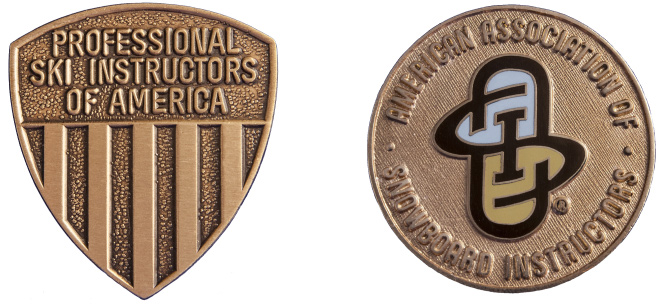Snow is falling, ski areas are starting to open, and across the country hundreds of happy people are about to begin their first season as ski and snowboard instructors.
To help welcome them to their own new adventures in learning, we went to the PSIA-AASI Facebook page and asked professional instructors, “What is your advice for new instructors about to start their first season of teaching snowsports?!”
Whether it’s items to always keep in your pockets, tricks for working with the schools, or advice on tackling your first lesson, here are just a few of the things other instructors wish they had known the first day they taught a lesson.
You can see all the suggestions right here.
“If you are new to the mountain, ask an instructor to give you a tour to learn the terrain and potential pitfalls. Many have made one turn too early and ended up on a little more difficult terrain than intended” – Nicholas Pape
“Don’t underinvest in first-time/day one skiers. If they have a good time, skiing could change their life. It sure did mine.” – David Ian Grant
“Concern yourself more with what your student is learning than what you are teaching. A lot of teaching doesn’t necessarily equal a lot of learning and less teaching may equal more learning.” – Robin Barnes
“Choice of teaching terrain, choice of teaching terrain, choice of teaching terrain.” – Tom Holliday
“Get your boots fitted by a professional boot fitter. You’re going to spend an awful lot of time standing in those boots and you’ll be grateful you took the extra care.” – Cynthia Mutimer Knowles
“Once a week get together with a group of fellow instructors, have a beer, a burger, and talk about life.” – Jimmy Ackerson
“Remember that however inexperienced you are, you still know more than the people you teach. Treat your clients better than you treat your family.” – Loren Livermore
“Keep everyone in one piece! Remember, people came to have a fun experience, not train for the Olympics.” – Amar Sinha
“Take time to build rapport and trust with your students. Things don’t always go as planned, so be ready to fall back on keeping it safe and making it fun when things go sideways.” – Phillip Howell
“Make sure your students are not hungry, thirsty, or tired. Learning is challenging enough without your body giving you a hard time as well.” – Kirsten Duane

